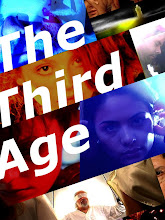Chungking Express
Chungking Experess is a film by director Wong Kar-Wai, one of my personal favorite directors. Wong Kar-Wai is an auteur, and like David Lynch or Tim Burton, all of his films takes place in a similar universe, and touch on similar themes. With a WKW movie, it's not so much the story that's important, it's the characters and visual style. Almost all his movies have the same basic plot, lonely people yearning for love, but it's done in different ways.
Chungking Express was the first film I saw by Wong Kar-Wai, and while it is a lot like his other stuff, it's also something of an anomaly, in that it's by far the most upbeat of his films. The characters may be unhappy at times, but there's a sense of optimism throughout the film, accented perfectly by the music throughout.
The film has two parts. The first one is good, but it's a bit less engaging than what comes later. The best part about the first part is the shooting style. The fabled "Chungking shot" is used brilliantly, and it adds a great sense of atmosphere to things. I love the blonde woman and He Qiwu's meeting in the bar, and the scene with the pager at the end. However, after you watch the film, that's not what sticks with you, it's the second half where the true greatness lies.
The second half is about the interaction between Faye and Officer 633, a customer at the fast food stand where she works. There are two reasons that this sequence is so great. First is Faye Wong, who's amazing. There are certain people who might not even be great actors, but when they're on screen, they're just magnetic and you can't help but love the character. Spike from Buffy is a great example of this, as is Samuel L. Jackson in most of his roles, and even Mary-Louise Parker in Angels in America, and Faye is definitely one of these people. She's got such an infectious energy and optimism, almost single handedly she makes this sequence unique among Wong Kar-Wai's stuff. If you compare her to the female agent from Fallen Angels, they're in basically the same situation, but she handles things very differently. She sees the glass as half full.
Faye is complimented by great use of music. Some say that 'California Dreamin' is used too much in this movie, but I never get sick of it, and it says so much about Faye's state of mind. I love her dance with the ketchup and tongs to the song. It shows how she brings this joy to where she works. I also like the fact that the characters within the movie hear the song too, and it's used as a plot point. The other great musical moment is the montage to the Chinese version of 'Dreams,' where Faye hangs out in 633's house. It's just so full of life and joy, fitting the character and the movie.
Tony Leung is something of the straight man to Faye, but he gets some good material. I like the talking to inanimate objects in his house, notably the towel. I also love when he says, "I'm becoming more perceptive," despite not noticing all of the many changes that Faye has made to his house.
WKW does some of his best stylistic stuff here. I don't think it's as strong visually as Fallen Angels is, but some shots are just gorgeous, notably the two still people/fast motion around them shots, first with Faye looking at Tony, and second with Tony at the jukebox in the California restaurant. I also love the scene where Faye puts the fan on her face, self consciously trying to make herself look cooler.
I love the ending of the movie, it's the most unashamedly upbeat ending of any WKW film. Fallen Angels and Happy Together both have sort of reluctant happy endings, but this one is just completely upbeat.
Faye: "Where do you want to go"
Tony: "Wherever you want to take me."
And then 'Dreams' hits, it's great, and such a perfect ending. WKW knows how to end a movie, as evidenced by the brilliant closing shot of Fallen Angels, which rivals this. Is this his best movie? I'm not sure, Faye is definitely the best character, but Fallen Angels has a lot of great stuff too. Regardless, they're complimentary pieces and both equally great. See them.
Related Posts
Fallen Angels (12/10/2004)
Days of Being Wild (In Depth) (4/28/2005)
Wong Kar-Wai Day (8/3/2005)



